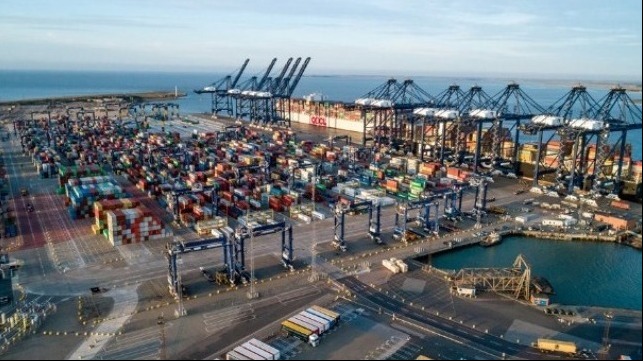EMSA Quantifies Impact of COVID-19 on Shipping

While anecdotal reports and data from ports showed some of the impacts the COVID-19 pandemic had on global shipping over the past year, the European Maritime Safety Agency set out to conduct the first comprehensive review to quantify the impact of the pandemic. EMSA’s report is based on a review of available data, including trade volumes and type, cargo freights, maritime traffic data, and other shipping indicators.
With the travel and trade restrictions implemented by many countries in 2020 impacted trade overall, EMSA reports that the pandemic had a greater impact on modes of transport like air, road, and rail. The share of world trade carried by sea increased by three percent in 2020 to 88 percent, as shippers looked for means to move their goods and sought to keep up with changing consumer demands.
“Maritime transport has proved its resilience throughout the course of the pandemic, keeping vital supply lines open while the world went into lockdown,” said Maja Markov?i? Kostelac, Executive Director of EMSA. “Our report shows for the first time the impact that the COVID-19 crisis has had on maritime transport in the EU, and we hope it will inform efforts and decisions at policy level to ensure a full recovery for this vital sector.”
According to EMSA, the EU accounts for approximately a fifth of all global maritime trade, with one in five ships worldwide sailing under the flag of a member of the EU. Yet, despite the number of ships operated by EU companies, the report determined that overall EU maritime traffic dropped by 10.2 percent in 2020.
The EU was more heavily impacted than other parts of the globe. EU seaborne trade dropped by 9.3 percent in 2020, a larger decrease than the global average of 3.6 percent. EMSA reports that the decline was equivalent to a loss of approximately 226 million tons of trade handled by EU ports.
“COVID-19 has caused profound disruptions for Europe’s shippers, charterers, shipowners, crews, onshore staff, ports, as well as our broader trading patterns and supply chains,” said EU Commissioner for Transport, Adina V?lean. “As we focus our efforts on building back better post-pandemic, it is essential for us to have a full picture of the crisis’ impact on strategic industries such as shipping so as to guide our policies and lay the foundations for a full and sustainable recovery.”
All the primary segments of commercial shipping were impacted by the pandemic in 2020. Voyages by vessels including bulk carriers, chemical tankers, containerships, and oil tankers decreased by approximately 5 percent. Cruise and passenger shipping, of course, was the most impacted, with EMSA reporting that traffic was down 86 percent in 2020 compared to the prior year.

that matters most
Get the latest maritime news delivered to your inbox daily.
Based on a review of customs data, the most significant decline in maritime trade volumes was in imports into the EU from non-EU countries, which fell by 12.2 percent in 2020. Shipping trade between EU Member States was also affected by the pandemic, decreasing by 7.1 percent. Sea-borne exports from the EU to non-EU states experienced a lower decrease of 4.3 percent.
EMSA concluded that the situation continues to evolve and the effects could be long-term. What shipping will look like post-COVID-19 is unclear, however, EMSA believes the data provides the tools to analyze the impact of the pandemic on certain shipping activities and assist the EU, maritime administrations, and shipping industry in determining a recovery strategy to overcome the economic crisis that Europe is facing.
